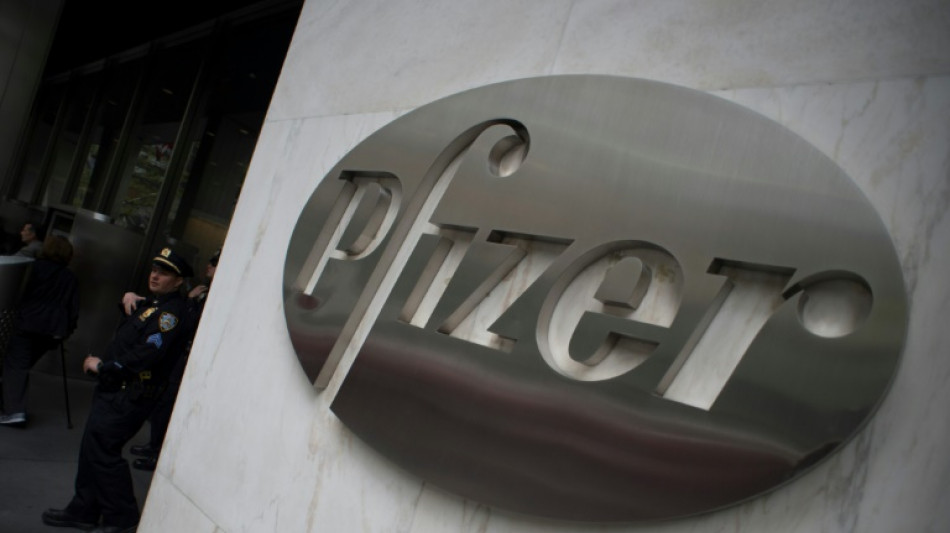
-
 Bangladesh in talks with ICC over fate of cricket World Cup games
Bangladesh in talks with ICC over fate of cricket World Cup games
-
Bardot to be buried in Saint-Tropez as cause of death revealed

-
 England's brilliant Bethell savours 'very special' maiden century
England's brilliant Bethell savours 'very special' maiden century
-
Lenovo unveils AI agent to bridge PCs, phones and wearables at CES

-
 Gauff drags US into United Cup semis as Swiatek also wins
Gauff drags US into United Cup semis as Swiatek also wins
-
Oil extends losses as Trump flags Venezuela shipments, stocks mixed

-
 Medvedev extends strong start to season ahead of Australian Open
Medvedev extends strong start to season ahead of Australian Open
-
Bethell slams maiden century to leave final Ashes Test on knife edge

-
 Nollywood meets Bollywood: filmmaker fuses Indian, Nigerian culture
Nollywood meets Bollywood: filmmaker fuses Indian, Nigerian culture
-
India women's historic cricket World Cup win fires up T20 league

-
 South Korea's Lee says urged Xi to help curb North's nukes
South Korea's Lee says urged Xi to help curb North's nukes
-
England's Bethell hits maiden Test century as family watch on

-
 US car market expected to moderate in 2026
US car market expected to moderate in 2026
-
Swiatek, Gauff ease to United Cup victories

-
 Strasbourg face pitfalls of multi-club system as Chelsea take Rosenior
Strasbourg face pitfalls of multi-club system as Chelsea take Rosenior
-
Bethell stands tall as England 174-3 in final Test, nine behind

-
 Ex-CIA agent convicted of spying for Soviets dies in prison
Ex-CIA agent convicted of spying for Soviets dies in prison
-
James, Doncic carry Lakers past Pelicans

-
 Vietnamese caught in Japan's illegal worker crackdown
Vietnamese caught in Japan's illegal worker crackdown
-
Nostalgia and new fans as Tamagotchi turns 30

-
 Oil extends losses as Trump flags Venezuela shipments, stocks wobble
Oil extends losses as Trump flags Venezuela shipments, stocks wobble
-
Overseas scholars drawn to China's scientific clout, funding

-
 From music to mind reading: AI startups bet on earbuds
From music to mind reading: AI startups bet on earbuds
-
'Of course it's not safe': small city in Russia tries to shrug off war

-
 'Simple' goodbye to Bardot lined up in Saint-Tropez
'Simple' goodbye to Bardot lined up in Saint-Tropez
-
England lose Crawley as they battle to save final Ashes Test

-
 Nvidia CEO praises robots as 'AI immigrants'
Nvidia CEO praises robots as 'AI immigrants'
-
Talks on Ukraine guarantees to continue after Paris 'progress'

-
 SNA Community Introduces AlgoEdge 5.0 as Brandon Mercer Highlights the Role of AI in Investment Education
SNA Community Introduces AlgoEdge 5.0 as Brandon Mercer Highlights the Role of AI in Investment Education
-
IRS Window Now Open for 2025 Tax Information Reporting: Tax1099 Encourages Early Filing to Reduce Errors and Avoid Penalties

-
 Pentixapharm Receives FDA Feedback for Phase 3 Diagnostic Study in Hypertension
Pentixapharm Receives FDA Feedback for Phase 3 Diagnostic Study in Hypertension
-
CellRight Tech: Private Equity Funding Secured

-
 Grande Portage Receives US Forest Service Special Use Permit for Environmental Infrastructure at the New Amalga Gold Project
Grande Portage Receives US Forest Service Special Use Permit for Environmental Infrastructure at the New Amalga Gold Project
-
WELT Unveils the World's First "AI-Combo Drug" at CES 2026

-
 AI, outdated visuals fuel misinformation after Maduro capture
AI, outdated visuals fuel misinformation after Maduro capture
-
John Harbaugh fired by Ravens after 18 seasons

-
 Jays and Astros hope to match Dodgers' Japan success
Jays and Astros hope to match Dodgers' Japan success
-
Under-fire Frank claims support of Tottenham hierarchy

-
 Fletcher asked for Ferguson's advice before taking Man Utd interim role
Fletcher asked for Ferguson's advice before taking Man Utd interim role
-
Juventus bounce back in Serie A as Roma, Como in Champions League hunt

-
 New Venezuela leader says 'no foreign power' running country
New Venezuela leader says 'no foreign power' running country
-
NBA Bulls sign Japanese guard Kawamura

-
 Rubio was called a sell-out, then he won on Venezuela
Rubio was called a sell-out, then he won on Venezuela
-
Relief mixed with fear as Venezuelans cross into Colombia

-
 Nine dead in clashes between Syria govt, Kurdish forces in Aleppo
Nine dead in clashes between Syria govt, Kurdish forces in Aleppo
-
Forest boost survival bid to leave West Ham in turmoil

-
 Boulbina stunner takes Algeria through, Diallo sparkles for I. Coast
Boulbina stunner takes Algeria through, Diallo sparkles for I. Coast
-
Trump considering military options to acquire Greenland

-
 Diallo stars as Ivory Coast set up Egypt showdown in AFCON
Diallo stars as Ivory Coast set up Egypt showdown in AFCON
-
Teen killed in anti-conscription protest in Jerusalem


WHO 'strongly recommends' Pfizer's Covid pill
The World Health Organization said Friday it "strongly recommended" Pfizer's Covid-19 antiviral pill Paxlovid for patients with milder forms of the disease who were still at a high risk of hospitalisation.
However the UN agency warned it was "extremely concerned" that the inequality in access seen with Covid vaccines would again leave low- and middle-income countries "pushed to the end of the queue".
US pharma giant Pfizer's combination of nirmatrelvir and ritonavir was the "superior choice" of treatment for unvaccinated, elderly or immunocompromised people with Covid, the WHO's experts said in the BMJ medical journal.
For the same patients, the WHO also made a "conditional (weak) recommendation" of the antiviral drug remdesivir made by US biotech firm Gilead -- which it had previously recommended against.
The WHO recommended Paxlovid over remdesivir, as well as over Merck's molnupiravir pill and monoclonal antibodies.
Pfizer's oral treatment prevents hospitalisation more than the "available alternatives, has fewer concerns with respects to harms than molnupiravir, and is easier to administer than intravenous remdesivir and antibodies," the WHO's experts said.
The new recommendation was based on the findings of two trials involving almost 3,100 patients which showed that Paxlovid reduced the risk of hospital admission by 85 percent.
The trials also "suggested no important difference in mortality" and "little or no risk of adverse effects leading to drug discontinuation".
The recommendation applies to people over the age of 18, but not to pregnant or breastfeeding women.
It also does not apply to patients with a low risk of complications from the disease, because the benefit would be minimal.
The WHO's experts also declined to give an opinion for patients with severe forms of the disease, due to a lack of data.
- Limitations and inequities -
The WHO stressed the limitations of such antiviral treatments.
"The medicine can only be administered while the disease is at its early stages," they said.
This means the patients must quickly test positive and be prescribed the pill by a doctor -- all of which can pose obstacles for low- and middle-income countries, the WHO said.
Yet Covid pills have been seen as a potentially huge step in ending the pandemic as they can be taken at home, rather than in hospital.
Patients must start taking their Paxlovid pills within five days of the onset of symptoms -- the course then lasts five days.
Remdesivir can be taken within seven days of symptoms setting in, but it is administered intravenously over three days.
- Questions about cost -
The WHO called on Pfizer to "make its pricing and deals more transparent" for Paxlovid.
Lisa Hedman, the WHO's senior advisor on access to medicines, said that radio station NPR reported a full course of Paxlovid costs $530 in the United States. Another source unconfirmed by WHO gave the price of $250 in an upper-middle income country.
Remdesivir meanwhile costs $520, Hedman said, but generic versions made by companies in India sell for $53-$64.
There is also a question mark over whether the virus could build resistance to these treatments.
But earlier this month Pfizer CEO Albert Bourla predicted a bright future for treatments like Paxlovid as people grow tired of getting further booster vaccinations.
Coming under fire for prioritising wealthy countries with its vaccine, Pfizer has agreed to allow some generic drugmakers around the world to make cheaper versions of Paxlovid under a UN-backed scheme.
But on Friday the WHO "strongly recommended" that Pfizer let more generic manufacturers produce the drug and "make it available faster at affordable prices".
F.Dubois--AMWN



